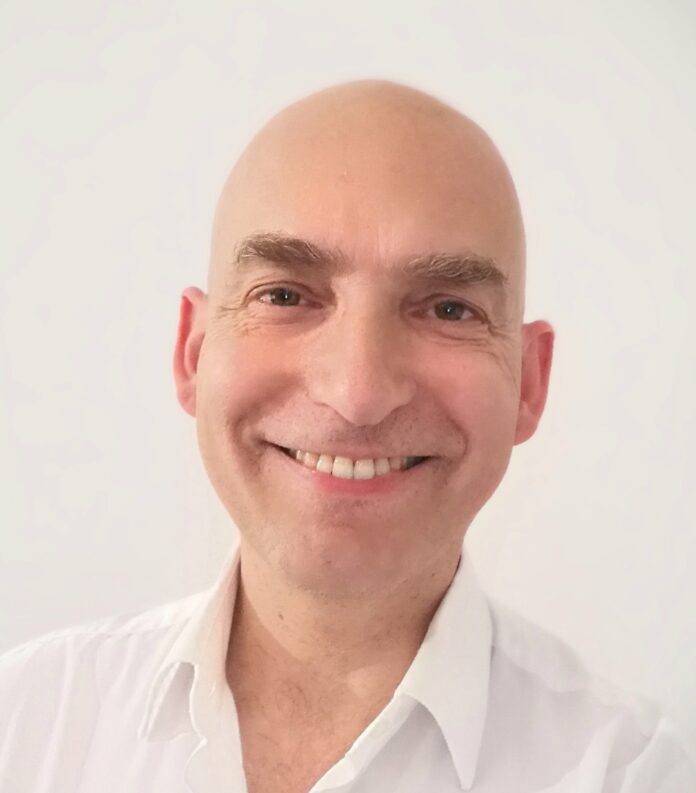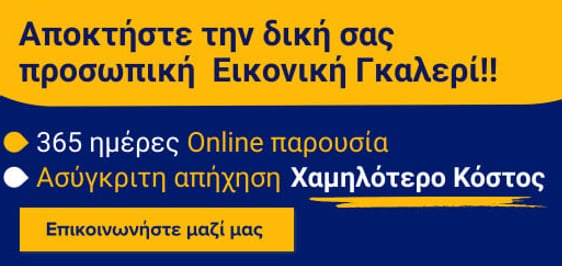Η Συνέντευξη που έδωσε στον Ιταλό ποιητή Carlo Molinari στο alessandria.today.
Επιμέλεια: Εύα Πετροπούλου Λιανού
Q. Dear friend Christos Charakopoulos, welcome to “Alexandria Today”! We are very pleased to be able to publish an interview with an artist from abroad. Thank you for your time. So, where do we start? Would you like to tell us a bit about who Christos Charakopoulos is?
A. Hello, Carlo. First, I would like to thank you for the honor of giving an interview to Alexandria Today. Congratulations on your work and the opportunity you provide to new creators to present their work. My name is Christos, and I grew up in Drama, a provincial town in Northern Greece, near Thessaloniki. I studied Classical Philology (Ancient Greek and Latin), completed a postgraduate degree in the Teaching of Modern Greek Language and Literature, and attended a three-year Creative Writing seminar program at the Tabula Rasa school. Currently, I am a PhD candidate in Creative Writing at the Department of Early Childhood Education at the University of Thessaly. I work as a Greek language teacher in secondary education in Pyli, Boeotia, near Athens. I enjoy learning foreign languages and traveling. I also write poetry and short stories.
Q. You are Greek: what do you love most about your homeland and what do you love least?
A. Greece is a beautiful country, and like every country, it has its positives and negatives. What I love about Greece is the deep blue sky, the clear and warm seas, the smiles and hospitality of the people, the good food, and the quality of life, especially in the countryside. Of course, things are not perfect. What I don’t like are the low salaries, the high cost of living, excessive taxation, and the corruption that exists—such as in the case of the lack of transparency and impunity surrounding the railway accident in Tempi, where 57 people lost their lives. Two years later, no one has been held accountable, nor has anyone been punished…
Q. Shall we talk a little poetry? How and why did you approach the world of poetry?
A. As a philologist, I am well-acquainted with poetry. I have studied Ancient Greek, Latin, and Modern Greek poetry, but I am also gradually discovering poets from Europe and America. Thanks to online literary magazines, I believe we can explore the poetic techniques used by poets from all over the world, and that is truly wonderful. Poetry exists everywhere—you just must be willing to discover it. I write poems and short stories. Since I have many professional obligations, it is easier for me to write poetry, as it requires less time than composing a short story. Now, if you ask me why I write poetry, the answer is simple: because it is a necessity. I believe that all of us who write—whether poetry or prose—feel the need to express ourselves. Poetry is a means of expression and a way to communicate with our readers.
Q. Are there any poets you particularly love? If so, would you like to tell us a little about them?
A. Oh, that is a difficult question because I have many favorite poets. Regarding modern Greece, I admire Konstantinos Kavafis, a Greek poet who lived in Alexandria and is well known for his poem Ithaca and many others that have been translated into numerous languages worldwide. Distinguished and beloved Greek poets also include Giorgos Seferis and Odysseas Elytis, both recipients of the Nobel Prize in Literature. From Serbia, I appreciate Crnjanski; from Russia, Mayakovsky. If I had to choose someone from Germany, it would be Brecht—I truly admire the themes of his poetry as well as his writing style. Finally, when it comes to Italy, I must say that I also enjoy your poetry.
Q. Christos, what themes do you most like to address in your poems?
A. The themes I choose for my poetry come from contemporary issues. I write about war, refugee experiences, and the emotions and struggles of people regardless of gender, nationality, or religion.
Q. At what times of the day do you prefer to write? Do you write every day or when it happens to you?
Α. I would love to write in the morning when my mind is clearer, but since I work in the mornings, I usually write late at night after I have finished my daily obligations. On weekends, when I have more free time, I write in the mornings or afternoons, depending on my mood and inspiration. I can’t say that I write every day, but if a good idea or a beautiful verse comes to mind, I jot it down in my notebook to develop later. In my free time, I often revise the verses I have already written. Writing is a process of writing, erasing, and rewriting.
Q. What do you think about moving those who read you with your poems? How important is emotion when writing?
A. I believe that poets are among the most sensitive and emotional people. This is precisely the value of the art of poetry—to evoke emotions and make life more beautiful. I think that this is my primary goal when writing poetry. Whether I achieve it or not is something my readers will decide. In any case, emotion is a powerful source of inspiration.
Q. Can there be poems that do not convey emotion?
A. In my opinion, no. What is the value of a poem or, more generally, any literary work if it doesn’t evoke emotions in the reader?
Q. Do you have any publishing projects, past or present, that you would like to tell us about?
A. I have not yet published a poetry collection, as publishing poetry in Greece is not financially viable. Readers tend to buy and read short story collections and novels more often. However, it is in my future plans to publish both a short story collection and a poetry collection, as I have written a considerable number of texts. For now, I have published poems and short stories in various anthologies and literary magazines in Greece and abroad, in English, Italian, and Serbian. In Italy, I participated in the poetry collections Fiori di Pesco, Antologia di primavera di poeti 2000 and the anthology Nati per amare, both available on Amazon. I would like to thank you for the invitation. Additionally, I was awarded in the Poeti 2000 nel mondo competition for my Italian-language poem Notte seduttrice.
Q. Besides poetry, are there any other passions you particularly love in your life?
A. I really enjoy reading literary books, traveling, and spending quality time with my friends. I love theater and swimming. I wish I had more free time to engage in sports.
Q. Let’s talk about the publishing market: how come, in your opinion, poetry hardly sells in bookshops and instead we find all kinds of poems on every page in social media? Do men and women need to write in verse?
Α. Poetry does not sell, yet it remains a timeless value and endures through time. The real issue is that younger generations have not been taught to read literature. As a result, writers can no longer make a living from book writing as they once did. This forces many authors, especially poets, to publish their work in print and, more often, in digital literary media, both domestically and internationally. While this offers an opportunity to make their writing widely known, it also carries risks. On one hand, it helps them gain recognition in their own country and abroad. On the other hand, literary magazines should apply a certain level of “filtering” to ensure the quality of the poetry and texts they publish.
Q. If a teenager wanted to approach the world of poetry, what would you advise them to do first? Do you think it is important to read poetry books before starting to write or is there an innate talent that is independent of poetic culture?
A. Poetic education is essential for any attempt at writing poetry. We read a lot; we write a lot. If I had to give advice to a young writer, I would tell him/her to read a great deal of poetry and to write as much as possible. The Greek poet Kostis Palamas used to say, “Appetite comes with eating, and inspiration comes with writing.” Talent is essential. However, even more important is the cultivation of that talent. Having a talent without nurturing it holds no value.
Q. Christos, what is “peace” for you?
A. A simple word, yet a difficult concept to define. Peace means growing up in freedom, studying, working, and falling in love without politicians destroying your dreams. Borders change often, but the trauma of war, unfortunately, never truly fades. I have traveled extensively and interacted with people from various nationalities—sometimes even from nations historically hostile to each other. Yet, they all long for peace. It is political interests that ignite wars, and the victims are not the politicians but innocent civilians. In this context, intellectuals play a crucial role in preserving peace.
Q. And what do you think friendship is?
A. Friendship is the only rose without thorns. A friend is our “alter ego”. In Greece, we often say, “We choose our friends, but we tolerate our relatives,” especially when referring to family members we don’t particularly get along with.
Q. One last thought from you to those who are reading you now…
A. I wish all our readers good health, the courage to set goals, and the determination to chase their dreams. Life is short—it’s worth living to the fullest every single day.
Q. Thank you, Christos Charakopoulos for this nice interview: when will your next poem be published?
A. The pleasure, Carlo, was mine. My next poem will be published very soon—perhaps tomorrow or the day after in a digital literary magazine. I wish everyone to keep reading and writing poetry. Until we meet again!
My favourite music – favourite videos
Greek music
“Manos Hadjidakis – The Smile of the Gioconda Full Album.”, https://www. youtube. com/ watch?v=Ydo71Z5NO0I
Mikis Theodorakis – The original sirtaki Zorbas, https://www. youtube. com/ watch ? v = Qsk FT7AaKH0
Italia
Il Volo – Grande Amore – Tributo a Ennio Morricone, https://www. youtube.com /watch ?v= z6uayny9QN0
Serbia
Bijelo Dugme-Djurdjevdan: https://www.youtube.com/watch?v=sqPOZVdkxVI
Teya dora – džanum (juzni vetar: na granici – official soundtrack): https://www. youtube. com/ watch?v=jD97hNDiyvI































![“Fun(k)y Ιστορίες” Τεύχος #1 του Στέλιου Γενεράλη [Music Video]](https://www.polismagazino.gr/wp-content/uploads/2020/11/20201122_171520.jpg)

